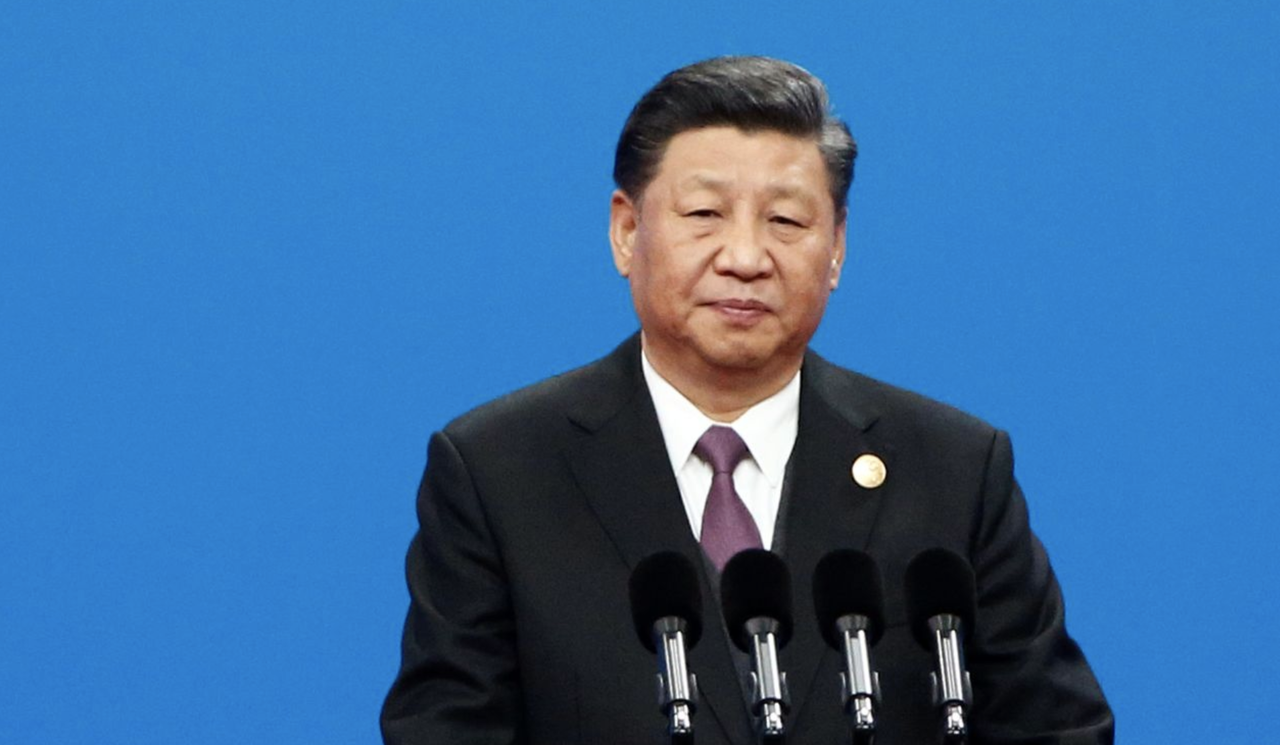via Zerohedge:
Mere hours after former White House strategist Steve Bannon again bashed Beijing’s ‘debt trap diplomacy’ during an interview on CNBC, where he also warned that Beijing has been trying to tone down its rhetoric to lull the west into a false sense of security, President Xi Jinping appears to be doing exactly that.
During his keynote speech at this year’s Belt and Road forum, Xi pledged to crack down on corruption and institute sustainable lending controls for all BRI projects, a sign that Beijing is growing increasingly wary of the backlash to what its detractors have dubbed a ‘neocolonialist project’.
According to the Wall Street Journal, “the comments mark a softening of the triumphalist tone Mr. Xi’s government has used to promote the program, which has stirred disquiet at home and abroad. Foreign critics have blamed Belt and Road – Mr. Xi’s vision for updating ancient Silk Road trading routes – for heaping onerous debt onto participating countries, while some Chinese say Beijing’s assertive diplomacy has generated international pushback.”
Going forward, Xi declared that all BRI projects would be managed “in a transparent way, and we should have a zero tolerance for corruption.”
“Everything should be done in a transparent way, and we should have a zero tolerance for corruption,” Mr. Xi said. He promised a “debt-sustainability framework” for Belt and Road projects and to encourage compliance with international standards in infrastructure contracting.
Walking back his commitment that the projects should be financed by China and China alone, Xi said that he could permit private and foreign financing for some of the projects.
Though Trump didn’t attend the speech, Xi spent a large portion of it addressing Chinese domestic reforms, pledging to roll back state subsidies, improve intellectual property protections, expand foreign investment in more sectors and avoid competitive devaluation of the yuan – all of which are areas where the US has been demanding concessions from China as part of the trade talks.
While Xi’s comments appeared calibrated to assuage criticisms first publicly levied by Vice President Mike Pence(criticisms that Beijing initially denounced as ‘malicious’), in many cases, this new commitment to ‘sustainable debt’ is tantamount to closing the barn door after the horse has bolted. As the American press has already chronicled, Beijing has already leveraged BRI-related debt to impose its will in Malaysia, Sri Lanka and elsewhere.
But as Beijing touts its plans for deleveraging while quietly injecting enormous amounts of credit into its dangerously indebted domestic economy, one Chinese analyst tried to spin Xi’s plans as a necessary step, claiming that the Communist Party believes it wouldn’t be prudent to finance such a massive infrastructure initiative by itself.
Beijing is fine-tuning Belt and Road, according to Zhang Zhexin, an analyst at Shanghai Institutes for International Studies. Its initial presentation was too broad and too loud, he said, and participating countries – often in distress – saw the program as a source of easy money from China.
“China just doesn’t have the resources to fulfill everyone’s demand,” Mr. Zhang said.
Echoing Xi, PBOC Governor Yi Gang said during the forum that Beijing must do a better job of taking government’s ability to repay BRI-related loans into account.
“A country’s total debt capacity should be taken into account,” Yi Gang, governor of the People’s Bank of China, told a Thursday seminar. He said that “private lending should be the mainstay” in financing projects to achieve sustainable development.
Notably, the softening in Xi’s BRI rhetoric comes as partner governments in Asia and Africa have cut back or scrapped BRI-related projects as they became increasingly wary of predatory lending from Beijing.
However, China’s treatment of some foreign dignitaries during the summit – particularly Europeans who insisted that language about responsible lending be included in a communique being drafted at the forum – suggests that Xi’s insistence that Beijing would shy away from debt traps might just be more lip service.
Despite the more circumspect public messaging, Chinese officials appeared highhanded to some foreign diplomats during preparatory meetings for the forum, people familiar with the process said.
In meetings to draft a communiqué for Mr. Xi’s Saturday summit with foreign leaders, a Chinese diplomat chastised some negotiators, especially European officials, after they pressed for references to best practices in business and investment, as well as human rights, the people familiar with the process said.
Guo Xuejun, a deputy director-general at China’s Foreign Ministry who chaired the meetings, accused the negotiators of showing disdain for Mr. Xi and China. He dismissed European requests for references to reciprocity as “American language,” referring to similar U.S. demands in trade talks with China, the people said.
“Remind me to disinvite your president,” Mr. Guo said at one point, according to the people, who said Chinese officials lodged diplomatic complaints against countries that sought amendments it disliked. China’s Foreign Ministry didn’t respond to a request for comment.
Assuaging the West’s concerns has probably become a priority for Beijing after Italy’s decision to join the initiative triggered a wave of anxiety in Europe and Washington. Whatever Beijing has planned, those countries that have chosen to host BRI projects shouldn’t let down their guard.
It’s also not out of the question that, with Xi still struggling to reverse a decline in the rate of economic growth that has persisted into this year, is simply telling the Trump administration what it wants to hear to improve his chances of getting a deal.
